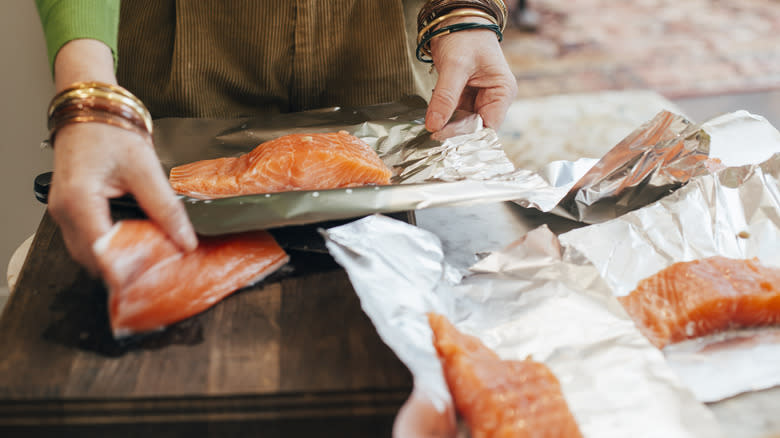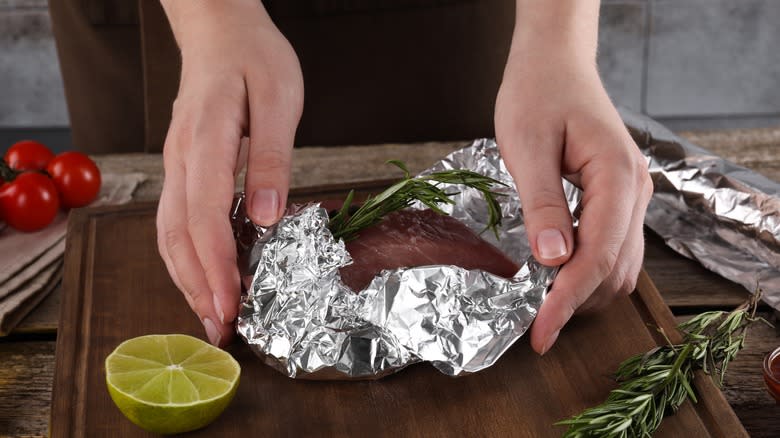When You Should Use Heavy-Duty Aluminum Foil Over The Regular Type

"Weird Al" Yankovic definitely had the right idea in touting the myriad of benefits and creative uses for aluminum foil in his parody song "Foil." If you toil with foil, it's important to know what kind you should be using for each situation, especially when there are so many different and clever ways to use aluminum foil in your kitchen. Typically, aluminum foil is offered in two gauges of thickness: standard, which measures around 0.016 mm, and heavy-duty, which measures around 0.024 mm. When it comes to uses, there is a notable difference between the capability and durability of standard and heavy-duty aluminum foil.
While standard duty aluminum foil covers the most basic necessities, heavy-duty aluminum foil is also handy — both in and outside of the kitchen. It's perfect for lining baking pans, ovens, and grills, covering full-size pans for transportation, and even acts, in some cases, as a durable and disposable lid in place of an ill-fitting pot lid. Some heavy-duty sheets are actually thick enough to be placed over an open fire, which makes them great for camping. Using heavy-duty foil, you can also carefully craft simple molds for chocolate-making, as the thickness of the foil will help it hold its shape better than standard duty foil.
Read more: 11 Cleaning Tips For Keeping Your Oven Spotless
Wrapping Your Mind Around Aluminum Foil

The common uses for standard duty aluminum foil are just what they sound like. For around-the-house wrapping of foods and covering serving trays, this thinner foil is ideal when packing a sandwich, preparing a potato for baking, or covering half-size foil pans set on a table. Thinner sheets of standard foil are also excellent for sealing moisture in foods. For example, wrapping your seasoned meat with foil will help the spices stick to roast beef. For kitchen cleanup, a scrunched-up ball of aluminum foil can also be used as a scrubbing tool to remove stuck-on bits of food from your oven.
Although both standard and heavy-duty foil have incredibly convenient and varied uses, it's also important to note that you should avoid using aluminum foil when cooking foods that contain a high amount of salt or acid. According to a 2020 study, contact between these foods and foil can cause adverse effects, including the potential for aluminum to leach into your food.
Additionally, according to the USDA, while a small amount of foil can be used in the microwave with precautionary measures, it is still a fire hazard due to the risk of arcing and sparking, and is not entirely advisable. By taking care and learning the proper uses of both standard and heavy-duty foil, you can finally get out there and go for the gold — er ... silver!
Read the original article on Tasting Table.
